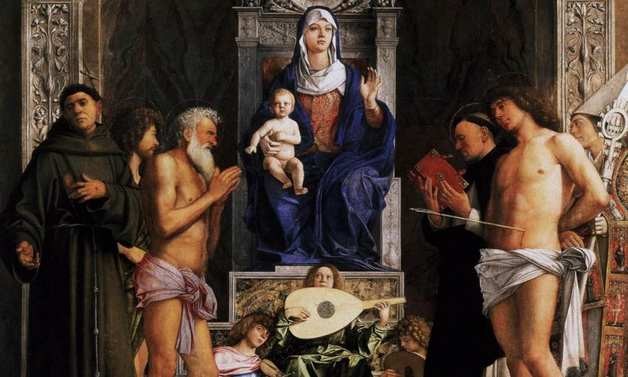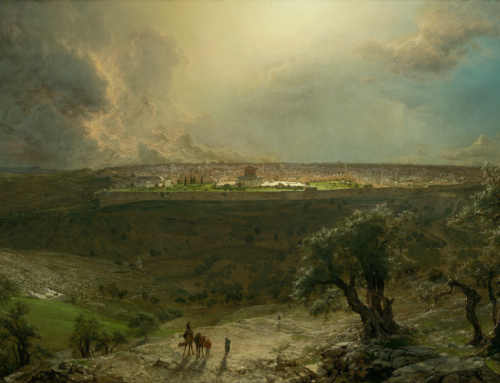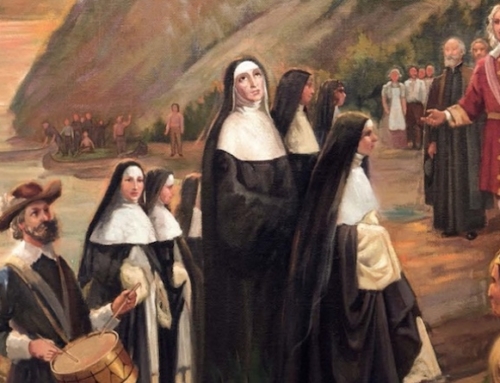Now take Francis and take Poverty
to be the lovers meant in my recounting.
Their harmony and their glad looks, their love
and wonder and their gentle contemplation,
served others as a source of holy thoughts.
So sings Saint Thomas Aquinas in Dante’s Paradiso. The great Dominican theologian lauds the virtue of the holy and beloved Saint Francis of Assisi in Dante’s epic poem. Perhaps surprising to some, Dante, writing less than a century after the death of Saint Francis, chooses a Dominican to give his eulogy. And in the next canto, it is none other than the great Franciscan theologian Saint Bonaventure who sings the praises of Saint Dominic. By thus arranging his poem, Dante immortalizes the profound bond between the Dominican and Franciscan orders.
Generally when people speak of St. Francis they speak of the joyful beggar, the man who fearlessly shared Christ to all who would listen. This tremendous saint, born into a life of luxury, underwent a dramatic conversion empowered by the grace of the cross of Jesus Christ. St. Francis then began a radical life devoted to his beloved Lady Poverty, directed only by the love of Christ crucified. He preached to all, and he preached everywhere. Little Francis put himself totally at the service of his brothers. By virtue of this humble, devoted life, Francis became known in Catholic tradition as a true alter Christus, one who verily became as another Christ.
How this portrayal of Francis contrasts with the all too common depiction of St. Dominic! In the minds of many, Dominic is wedded not to Lady Poverty but to Inquisitions and crusades. Some sources go so far as to swiftly denounce St. Dominic as a monster of cruelty and lover of tortures and wars. Nothing, however, could be further from the truth. The truth about St. Dominic, that noble preacher of grace, shows that his life and teaching bear more similarity to St. Francis than many may think.
The Last Testament of Saint Dominic gives some indication of Dominic’s proximity to Francis. In this short text Holy Father Dominic commends to the brethren three primary virtues for the religious life. If we include the introductory portions of the text, we can also deduce an exhortation to obedience. Incredibly enough, these four virtues are among the six Saint Francis lauds in his glorious Salutation of the Virtues. A cursory examination of these texts, enshrined in the mendicant tradition and handed down through the centuries, reveals the light of these two works dramatically shining upon a portrait of two men united in “one heart and mind” (Acts 4:12).
- Obedience– St. Dominic exhorts the brethren to “remain always united having your hearts and wills conformable to that which Our Savior has taught you and which our Holy Rule imposes upon you and of which our Constitutions reminds you.” In these words, St. Dominic urges the brothers to an obedience of love, which stands in sharp contrast with a merely legalistic subjection. These words ring with the echo of Francis, who writes, “Holy obedience confounds all bodily and fleshly desires and keeps the body mortified to the obedience of the spirit and to the obedience of one’s brother and makes a man subject to all the men of this world.” For Francis, obedience is the means by which a man puts himself at the service of another.
- Charity– St. Dominic tells his brothers, “Charity will unite you to God, and you will receive therefrom those favors which the true friends of God are accustomed to enjoy. In Persecutions you will be intrepid, and many of you will not hesitate to shed your blood for the faith.” How similar these words seem to those of the Seraphic Father who says, “Holy charity confounds all diabolical and fleshly temptations and all fleshly fears.” Charity enflames the soul with love for God and renders the possessor fearless in the face of the treats and temptations of this world.
- Humility– Holy Father Dominic writes, “Humility will remove from your heart all false pretension, free from all proud ambitions and relieve them of the heavy weight of temporal dignities.” Similarly, Holy Father Francis teaches, “Holy humility confounds pride and all the men of this world and all things that are in the world.” Both of these poor friars knew that humility lies at the heart of the Gospel, and by humility the burdens of the world are cast off and the values of the world inverted.
- Voluntary Poverty– The final virtue St. Dominic commends to his brothers is voluntary poverty. He tells his friars, “Lastly, I leave you Voluntary Poverty, that which, although she may indeed appear less comely outwardly, yet is the more fair and precious interiorly and well endowed with spiritual wealth, since it is certain that her merit cannot be paid with the price of this earth, and therefore is the Kingdom of Heaven assigned as her reward.” He continues, “O my children, my brethren, love, revere and observe Holy Poverty: I esteem regard for this observance above all other things in religion.” Spiritually united in the same noble devotion, Francis says, “Holy poverty confounds cupidity and avarice and the cares of this world.” The friars Francis and Dominic knew that poverty would free their brothers and enable them to occupy themselves solely with the work of preaching the Gospel.
✠
Image: Bellini Giovanni, San Giobbe Altarpiece







